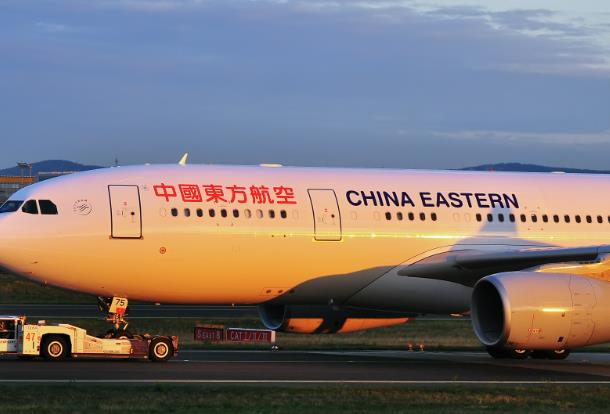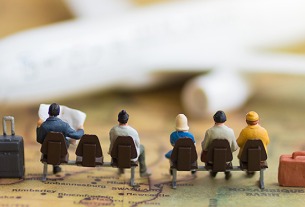In March of this year, hotel consultant Thibault Catala posted on LinkedIn about his frustration in trying to help a new hotel in Greece become listed on Expedia Group websites. Catala shared the response he received from Expedia Group, which said that “due to the reduced demand for your market, we will not be able to effectively support your business.”
Catala’s post generated more than 60 comments, some from people who had similar experiences with Expedia and with other online travel agencies, and many questioned whether pausing onboarding was a result of strategy or lack of resources – or both.
When asked, Expedia Group vice president of market management for North America, Rachel Bird, says via email: “We are still adding properties to our site. However, we are carefully managing that process and onboarding properties once conditions in their market are prime for them to thrive. ... Our priority is ensuring that our travelers have sufficient choices when searching for a destination, while also ensuring that lodging partners that choose to work with us receive the type of bookings and guests that suit their business needs.”
Catala – who is now in the process of getting the property listed on Expedia Group - says he understands prioritizing existing customers, but he also believes the pandemic has highlighted the need for more efficient onboarding systems across all distribution stakeholders.
Some hospitality technology partners are working to address this need.
SiteMinder has just launched a new package of automation tools for its Little Hotelier brand, which provides a reservation and hotel management system for small properties of about 30 rooms or fewer.
“One of the biggest challenges for technology adoption in hotels has been the complexity of bringing hotels online,” says SiteMinder CEO Sankar Narayan.
“We are intending to bring the onboarding time from a matter of weeks to well within a day. In fact if the hotelier has all the information ready, very soon the hotelier will have full distribution within an hour.”
The product is available in the United States and the United Kingdom and will soon be available in more markets. Hoteliers use an online wizard to sign up and can get assistance through a chat function.
Narayan says Little Hotelier Basics is just the first of what will be a broad suite of automation products rolling out from SiteMinder over the next few months for things such as revenue management, distribution and group bookings.
“We are working on other automation solutions that really reduce the burden on hotels large and small for them to be able to adopt, embrace and really realize the full potential of technology,” he says.
“Launching these products now is timely because we do find hotels more open to embracing and adopting new technologies as a way of recovering coming out of the pandemic.”
Internal benefits
New digital solutions not only have the potential to add efficiency for suppliers, but also for their distribution partners.
Hotelbeds reduced its headcount by about 30% across all departments due to the pandemic, and digital commercialization director Paul Anthony says that as the company prepares for travel to resume it has identified ways to add automation to “make sure the efficiency gains that we have been able to see are possible are maintained as we go back into growth mode.”
As part of that, Hotelbeds has updated its extranet to make it easier for hotels to enroll without the need for human support. The company has also created new tools for channel managers to onboard hotels using an API that imports all of the necessary information.
Along with spurring technological innovation, Anthony says the COVID crisis has caused Hotelbeds to adjust its approach to hotel acquisition.
“We want to make sure that we are focusing on the ones that we are able to gain what we believe to be the right margin. A new hotel requires an introduction to our customer base. They need to do work to be able to bring that to the fore as well. The entire chain takes time for that to happen. So we’ll be focusing on those hotels that are willing to pay the distribution cost of what we do,” he says.
“So yes, we are open for business. At any cost? No.”
What that means for new properties looking to join Hotelbeds is an end to what Anthony says used to be the “honeymoon period” that existed pre-pandemic and enabled hotels to join the system at a lower initial cost.
“I think maybe at the point of entry it probably looks higher, but I don’t think that means that the reality of that cost of distribution is now higher. It’s just that we won’t be as permissive to say, ‘Come on at whatever cost of distribution you feel comfortable to pay and then after that we’ll talk about showing you the value of our distribution and seeing how you can then pay us for that.’”
“Now it’s, ‘This is what Hotelbeds can offer you, this is the cost of distribution that we will need to be able to offer that to you. We’re here for you, and please advise if you would like to start working with us.’”
Along with upfront pricing – which Anthony says is between 18 and 20% - the pandemic has also led Hotelbeds to insist on having specific rate types, including nonrefundable and package options.
Catalyst for collaboration
Similar to Hotelbeds, WebBeds has also been updating its onboarding systems in the past year to make them more efficient for suppliers.
Mark Desborough, WebBeds chief operating officer for Northern Europe and the Americas, says because the company has grown through acquisition in the past few years – including acquiring JacTravel in 2017 and Destinations of the World in 2018 – it was operating multiple platforms, which meant inefficiencies for its partners. The slowdown of the past year, Desborough says, gave the company an opportunity to finish building a single platform for onboarding new supply.
The pandemic has also spurred the company to seek collaborative solutions with its technology partners.
“For example - SiteMinder - we have done a joint promotion with them to be able to go out to the hotels that are connected with them to encourage more of them to connect to our channel. Or with a PMS, for example, in the past maybe we would have needed to go to each individual hotel to get a contract, now we are working with the PMS providers to say, 'With these criteria you can sign up and start working with us,'” Desborough says.
“This has been accelerated by the pandemic. Because we haven’t necessarily been bogged down with the day-to-day, we’ve been able to push forward with ideas we previously had.”
To the question of whether WebBeds has paused supply acquisition, Desborough says, to the contrary, the company has been looking to expand its portfolio.
“The difficulty of not continuing [to add supply] is, when is there enough demand to be able to come back?” he says.
“If you are honest with people – I don’t think anybody is under any illusion that there’s not less business around than there would normally. So I’m not promising you that we’re going to fill your hotel, but I can promise you we will put you out to our client base and so when things do start to pick up and we are in a position to be able to provide more business to everybody, you will be included in that. And obviously then we’re going from a running start rather than having to sort of start from scratch.
“Our view has been to be prepared for when we get back to some normality, because it will happen.”
Read original article




